These organizations innovate homeschooling.

“What is most important and valuable about the home as a base for children’s growth into the world is not that it is a better school than the schools,” educational theorist John Holt said, “but that it isn’t a school at all.”
Holt argued schools work as oppressive environments and turned kids into compliant employees. And that’s how in the 1970s, the modern homeschooling movement began.
The debate is still ongoing, and many people argue schools enforce and prioritize compliance and consumption over critical thinking and creativity.
Learning in home education is often less formal and more personalized than school education — ranging from traditional school lessons to free forms such as unschooling.
Reasons for homeschooling vary from better educational opportunities, a healthier learning environment, special needs, or being the only option in remote areas.
Homeschooling is legal in many countries (e.g., Australia, Canada, New Zealand, the United Kingdom, the United States) but outlawed by others (e.g., Germany, Japan, Brazil).
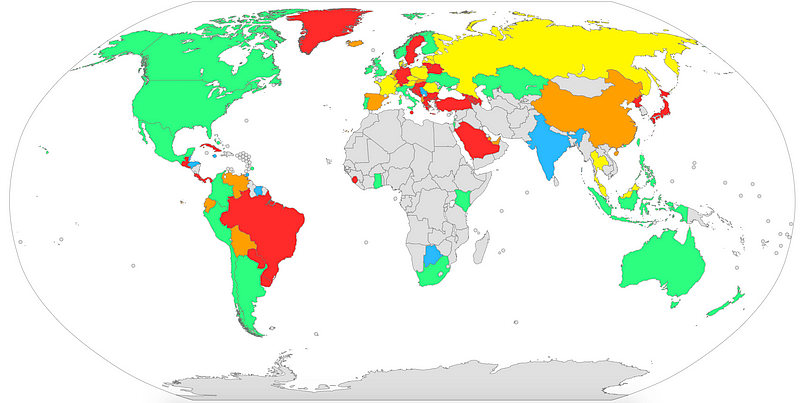
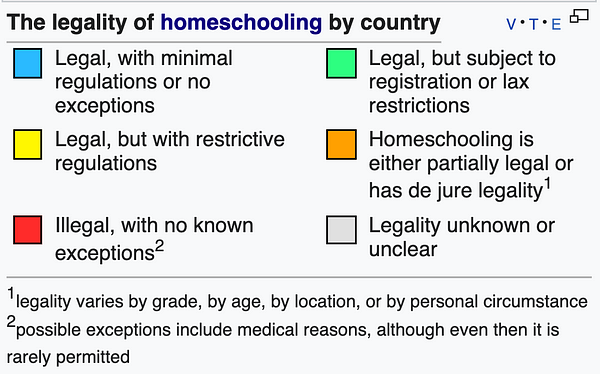
What follows are three organizations that rethink the way children learn from home.
1) Primer — A home for ambitious kids.
Primer is the world’s first community built for curious and ambitious kids to find and explore their interests together. Their goal is to “free the next generation of kids to be more ambitious, more creative, and to think for themselves.”
Unlike connected learning networks that replace core curricula, Primer is supplemental. To foster kid’s curiosity, the team offers various learning formats:
- Clubs. Students collaborate on projects such as writing, storytelling, coding, inventing machines, music, or nature.
- Rooms. Live audio chat spaces allow students to experiment with new ideas, solve problems, and tap into their interests (e.g., debating, writing, puzzling, coding, starting a business).
- Journals. In journals, kids can document their projects by creating and organizing blocks of text, images, videos, and links.
There is no set schedule for a day with Primer, as all their activities happen in addition to set curricula.
After a free trial month, Primer is $49 a month for the first child and $19 a month for each additional child.
Primer was founded by Ryan Delk and Maksim Stepanenko, who both have been homeschooled. Previously, they helped build companies like SpaceX, Square, Gumroad, Lyft, and Coinbase.
“We studied the American Revolution by driving to historic locations in the original 13 colonies and crawled through cardboard tubes to learn how the digestive system works.”
— Ryan Delk, Co-Founder of Primer
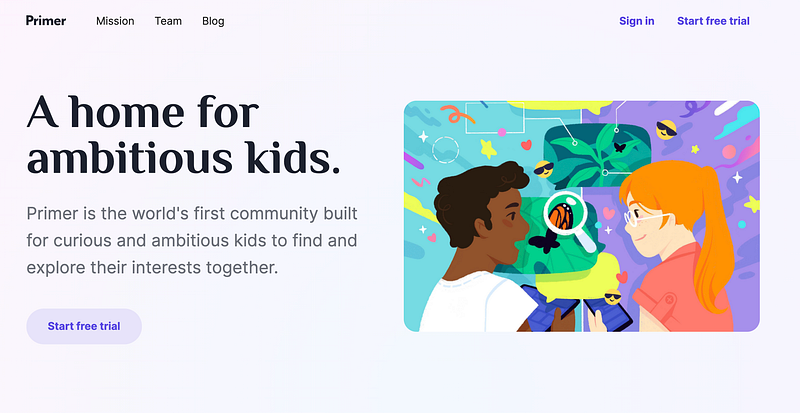
2) Outschool — Where kids love learning.
Outschool online marketplace of virtual classes for children aged 3–18. Outschool’s goal is to engage and inspire learning through various classes and subjects.
The platform offers kids the opportunity to explore their interests in-depth with interactive classes taught via live video by experienced, independent teachers.
Like Primer, Outschool doesn’t suggest a fully-fledged curriculum. Instead, the platform offers more than 100,000 live lessons to more than 900,000 learners in 174 countries.
Pricing starts with $10 a course, and the most expensive multi-week course I found on the platform costs about $75.
The platform was founded by Amir Nathoo, who is a former investor and holds various patents.
“If we just stick to the core curriculum, then it is very difficult for kids to develop differentiated skills. More of the school day needs to be spent on kids pursuing their interests with the benefit of increased autonomy and self-direction — with this, kids’ motivation to learn can increase. There’s going to be so much change in technology and society in the next 10 years, I think we will head in a direction of hybrid core + self-directed.”
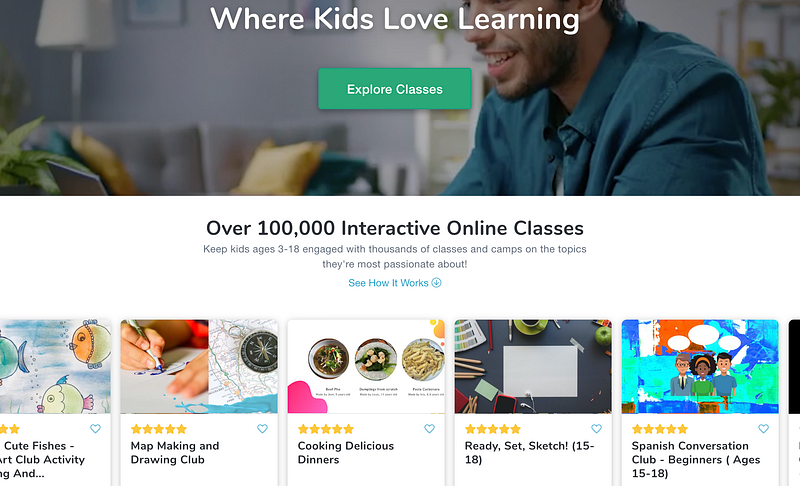
3) Synthesis — Where kids become
problem-solvers.
Synthesis started as a school spin-off from Elon Musk’s AdAstra school. As of now, it’s a weekly, 1-hour enrichment program for students who want to learn how to build the future.
They offer a simulation-based learning experience built around complex team games. Students work through case studies, simulations, and game-based challenges.
Synthesis doesn’t design simulations for content but the experience. Simulations are complex and have no right answers. For example, 18–20 kids work in groups with one facilitator. But facilitators don’t lecture. Instead, the student groups explore and learn game rules on their own.
The idea of the simulations is to change the way kids approach real-life problems and prepare them to navigate the complexity and chaos that comes with life.
While playing, kids teach themselves how to win. In the process, they learn new problem-solving skills. Here are two game examples:
- Art for All. Students compete in an auction game for the best art exhibits. The simulation covers negotiation and covers mental models such as auction theory and the winner’s curse.
- Fire! In this collaborative game, students fight forest fires with varying conditions. It covers mental models such as positive-sum vs. zero-sum games.
Pricing is $180 per month, and a sibling discount is available.
Synthesis is led by Chrisman Frank. On a visit to Elon Musk’s AdAstra school, he fell in love with Synthesis.
In 2020, Frank convinced the AdAstra principal and his former colleague Josh Dahn to spin-off Synthesis as a for-profit company. Frank’s vision was to scale the learning software and develop a generation of super thinkers.
“When mistakes are not penalized, people are more likely to just keep trying. And if you keep trying, then naturally, you have more chances of eventually succeeding.”
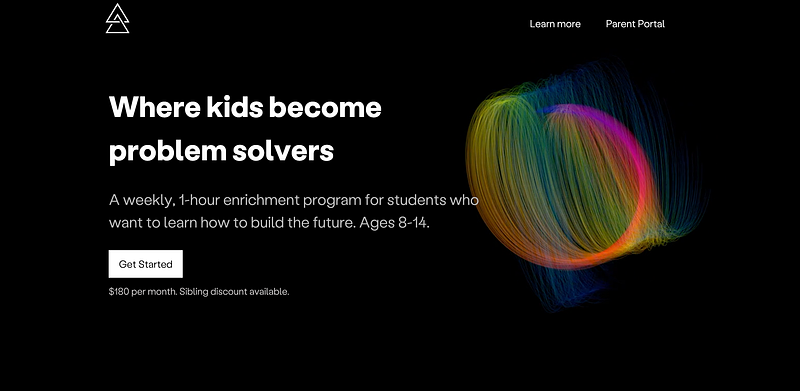
Want to feel inspired and improve your learning?
Subscribe free to The Learn Letter. I read a book and 50 articles a week, and each Wednesday, you’ll receive the best in your inbox. This newsletter will make you find tools and resources that help you on your path to health, wealth, and wisdom.